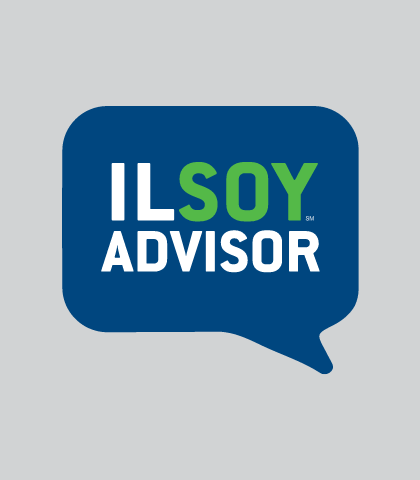In Illinois, there are over 72,000 farm operations, covering 27 million acres (75% of the state’s land area) generating over $25 billion annually in agricultural commodities. Additionally, billions of dollars are contributed to the state’s economy from agriculture related industries (retail; manufacturing; processing; sustainable aviation fuel, biodiesel, and ethanol production) providing jobs and other economic benefits to both urban and rural areas of the state.
Crop protection tools, such as pesticides, play a pivotal role in sustaining agriculture, aiding farmers in maintaining high yields and affordable food prices, and advancing conservation initiatives. Unfortunately, growers’ access to these critical tools are being threatened by off-farm political interests. Illinois Soybean Growers (ISG) is working hard to protect Illinois’ vital agriculture industry by defending growers access to crop protection tools they need to feed, clothe, and fuel the world. As such, we believe that it is important to bring to your attention concerns we have regarding likely actions soon to be taken by the EPA.
Support the effort to push back on the EPA Herbicide Strategy by signing this petition urging the agency to withdraw the draft herbicide strategy no later than 11:59 PM Eastern on Friday, October 20. This effort is supported by ISG, American Soybean Association (ASA), and many other grower groups. ASA will compile the names from this form and include it in this farmer letter. Only a signer’s name, city, and state will be included.
There are a multitude of problems with the proposed EPA Herbicide Strategy that Illinois farmers should also be concerned about, including…
- New policy on fields with tile drainage requiring the construction of wetlands/retention ponds to prevent all drainage from off-site.
- Farmers becoming susceptible to civil and criminal penalties for violating proposed ESA regulations.
- The potential of becoming a “Surveillance State” meaning individuals will be rewarded for reporting farmers, thus, exposing farmers to the potential for false accusations that may be difficult to defend.
- The EPA splitting much of the country into Pesticide Use Limitation Areas (PULA) based on loosely defined and identified habitats making compliance even more difficult and, in some cases, effectively creating pesticide exclusion zones.
- The EPA enforcing downwind spray-drift buffers of up to 500 feet for aerial applications and 200 feet for ground applications near ESA habitats.
Sign the petition to ensure your rights are protected against costly or unworkable restrictions for many producers, such as…
- Requiring herbicide users to attain “points” by adopting certain runoff reduction practices (reduced tillage, cover crops, vegetative filter strips, contour farming, etc.) to use most herbicides (most herbicides could require 6, 9, or more points to use)
- Downwind spray drift buffers as great as 500 feet for aerial application or 200 feet for ground application (these distances could be reduced by using coarser spray droplets or other mitigations)
- Runoff mitigation exemptions can apply for applications more than 1,000 feet from terrestrial or aquatic “habitat” (“habitat” definitions are very broad, and few areas are likely to qualify for this exemption) or if you are under a field/site-specific runoff conservation plan
- If you have subsurface drainage, you cannot comply with runoff reduction practice requirements. All subsurface drainage must be channeled into retention ponds or saturation buffer zones.
By supporting this issue, you are supporting the agriculture industry and protecting your right to utilize valuable tools like pesticides. ISG will continue to fight for soybean producers and ensure that you have a voice in Springfield and Washington. If you have concerns with the proposed changes, ISG encourages you to sign the petition by Friday, October 20th to the EPA urging them to withdraw the draft herbicide strategy. For more information and to keep up-to-date on the Endangered Species Act, visit the ISG website.




 and then
and then